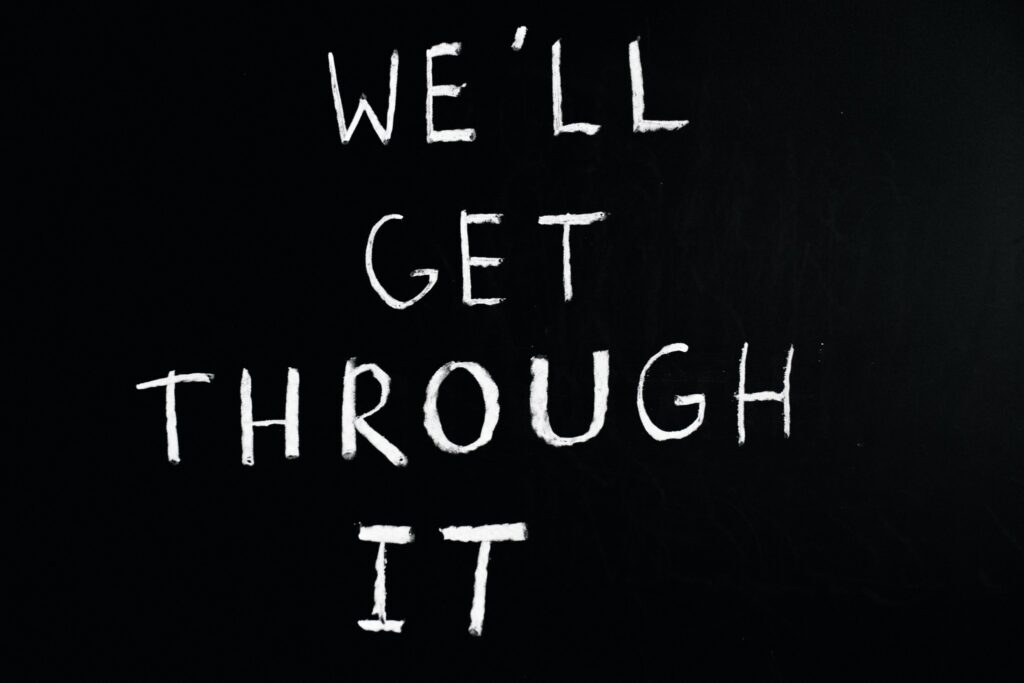Let me just start by saying that I’m an achiever in every way. It’s like I have this innate need for me to prove to not only myself but everyone around me that I am capable of great things. It can be something as simple as proving that I can spend $5 less than the day before to something as complicated as increasing my daily walks from four miles to 10 miles so I can compete in a half marathon that I signed up for only one month in advance. There is one achievement, however, that stands out above all others. This is my master’s degree. I graduated from Arizona State University’s online English program at the beginning of August this year. I could not be more incredibly proud of myself for this accomplishment; however, I can’t say that the road to this achievement has always been easy. My journey before, during and now after graduation has been filled with ups and downs. I’m hoping that by writing this article, I can give you some advice to help you in making your decision of whether to stop at undergrad or continue on to grad school.
Read on to find out the pros and cons of grad school in my experience:
Pro #1: A master’s degree will give you a higher sense of achievement.

As I mentioned, I have a bit of an addiction to achievement. When I graduated with my bachelor’s degree in communications, I didn’t feel satisfied. I felt I had more to prove. I would like to mention before I go on that this is a bit of a problem for me. I suggest if you choose to go on to grad school, go for yourself, not for others. However, that desire to prove myself didn’t change the thrill of the sense of achievement I felt when I held that degree in my hand. I no longer just had a degree. I could now call myself a master in a subject I felt passionate about.
Con #1: You’ll need a strong support system.

I would not suggest going through grad school alone. I can promise that if you care about your grades and are really trying, the stress will get to you. That happened in my experience, at least. I became so obsessed with trying to get a good grade during my first class that I suffered a hypomanic episode. Unfortunately, because I was so unaware of the toll the pressure was taking on my mental health, I almost lost friendships with those who had to deal with me. It got bad enough that people had to block my number.
At that time, I was not as aware of how the pressure was affecting me and I did not have the support system that I do now. When my hypomania died down and I became more aware of how the stress affected me, I started reaching out for support when things became overwhelming. I suggest having at least five people you can reach out to. That way, you don’t have to rely on only one person as your sole source of support.
Pro #2: You can make more money.

This one seems self-explanatory. On average, someone with a master’s degree will make about 20% more than someone with a bachelor’s degree. However, there are a couple of factors to consider here. In specific fields, a master’s degree can be considered entry-level, so a pay increase would only make a difference if you went on to get a PhD. Experience counts (I’ll go into that in more detail later). Unfortunately, for this one, I cannot offer you specific advice because I only had a two-month break between my bachelor’s degree and grad school.
Con #2: You’ll end up with almost twice the debt.

Again, you could probably figure this one out on your own. My student debt after my bachelor’s degree was $28,000. Now that I have finished my master’s, I will spend the rest of my life paying back a whopping $40,000. Yay. But as it turns out, I must be lucky. According to the Education Data Initiative, the average undergraduate student loan debt balance is $37,337, while the average debt among master’s degree holders is $83,651. The good news here is that a lot of master’s programs offer scholarships for research and participation. So, if you choose to further your education, make sure you’re ready to pay off these extra student loans.
Pro #3: It’s a good way to change your career or course of study.

This was another reason that I decided to go to grad school. My bachelor’s degree was in communications. I originally majored in business; however, after one class, I realized I never wanted to do anything with business. When talking to my advisor, she suggested I might like communications. She was right. I absolutely loved communications. Learning about all the theories, applying them to research essays, and learning the subtleties of how people communicate was so much fun for me.
However, as it turns out, most communications careers require you to be incredibly knowledgeable about social media. At the time, I hated social media, and therefore realized that I had chosen the wrong major. (It’s ironic now that I intern for a magazine where 80% of my job is sharing and reaching out on social media.) That is when I decided to make my dream of becoming a writer a reality. One month after graduation, I was accepted into Arizona State University’s online English master’s program specializing in writing, rhetoric and literacy.
Con #3: Expect to work twice as hard as you did in undergrad.

I’ve always been a good student. During my bachelor’s degree, I found the material so incredibly easy most of the time that I would finish my work a week ahead of time. I remember once my family and I had a vacation planned for the third week of one of my classes. I finished the first four weeks’ worth of work as soon as I got the syllabus. I went into my master’s program expecting much of the same. It turns out that was not the case.
In my very first class, the one where I had the hypomanic episode, I barely turned in my final assignment a few hours before the due date. This impacted my already deteriorating mental health even more. On another occasion, I had so much trouble writing an essay that I could not even finish it before the class ended and grades were due. I actually had a seizure that day. We never figured out the exact cause; however, we have a good guess it may have been induced partially by the stress of my inability to keep up with my work.
This isn’t to say you’ll have the same experience. I simply have a low seizure threshold. This is just to say how much the pressure got to me. Luckily, I talked to the instructor and he offered to give me an incomplete for the course, which allowed me one full year to turn in the essay for full points and pass the class. Fortunately, I turned it in about a week later and it ended up okay. So be warned. Grad school comes with a lot more pressure.
Pro #4: Only core classes are required.

This can be a pro and a con, depending on the way you look at it. I personally loved it because after barely passing the two required math courses for my bachelor’s degree, if I had had to take a 500-level math course to get a master’s in English, I guarantee I would have failed. The con in this situation is that you don’t have to/get to take those easy “A” courses like you did in undergrad which boosts your GPA when you don’t end up doing so great in those more difficult core classes. This was a pro in my experience because I got to focus only on what I was “mastering” in. Like I said, I went for English and nothing else. So, when I reviewed the required curriculum before applying and seeing the only requirements were English courses, it was a huge bonus. I can’t promise that this is true of all master’s programs; however, this is the general consensus from talking to other grad students.
Con#4: Elective options are limited.

I can only speak of this from my experience at ASU. I was required to take 12 electives on top of my required core classes. Unfortunately, they gave me very limited options as my list of possible electives included only 500-level English courses. For some reason, film studies was also an acceptable elective for those seeking an English master’s degree. This still makes no sense to me because I don’t see how it relates to English in any way. I had to get permission from the department chair if I wanted to take an elective outside of the approved electives. I also had a “required” elective of reading a foreign language, which, despite my seven years’ worth of French, I still didn’t understand. I would just like to add here that I am still annoyed that, as an English major, I was required to learn how to read a foreign language. If you can make any sense of this idea, please let me know.
Pro #5: A master’s is the new bachelor’s.

I hate to be the bearer of bad news, but a master’s degree has become the new bachelor’s degree. I guess we can look at this as a pro and a con. Ten years ago, it seemed you only needed a high school diploma to work at a front desk for $15 an hour. When I was job searching about five years ago, before I decided to go back to school, this exact same job required a bachelor’s degree. Now, as I have just graduated with my master’s degree, the first job to contact me required me to have a master’s or PhD and they paid $18/hour. So, looking at the bright side of this, if you want a good job or most any job for that matter, grad school is the best option.
Con #5: In the end, experience usually matters more.

This has been, by far, the most disappointing part of my grad school journey. I worked tirelessly for two years of my life, only to spend the last two months searching for jobs, to receive a total of 26 rejections so far. And those are only the jobs that have responded. Did you know that even entry-level jobs require at least up to one year of experience? I’m wondering how I fit in a year of experience while I am so stressed out over my work that I’m having mental breakdowns? I so badly want to be a writer or an editor and hoped beyond hope that my previous writing and editing experience would be enough. So far, it turns out it’s not. Don’t worry. This does end on a somewhat positive note. The reason I majored in English is because I knew I could always fall back on teaching. The very first job I applied to, as an adjunct English professor at a nearby community college, interviewed me two days later and hired me two days after that!
So, in conclusion to this article, my experience with grad school came with many pros and cons. This isn’t to say that you will have the same experience. Maybe only one or two of these will apply to you. I hope that after reading this article, I have helped you in your decision on whether you should stop at undergrad or continue on to grad school. Again, I write this article from my experience. Some of what I say are facts and some are only what happened to me personally. The best suggestion I can give you is that you do your research. Make the decision that is right for you.



















